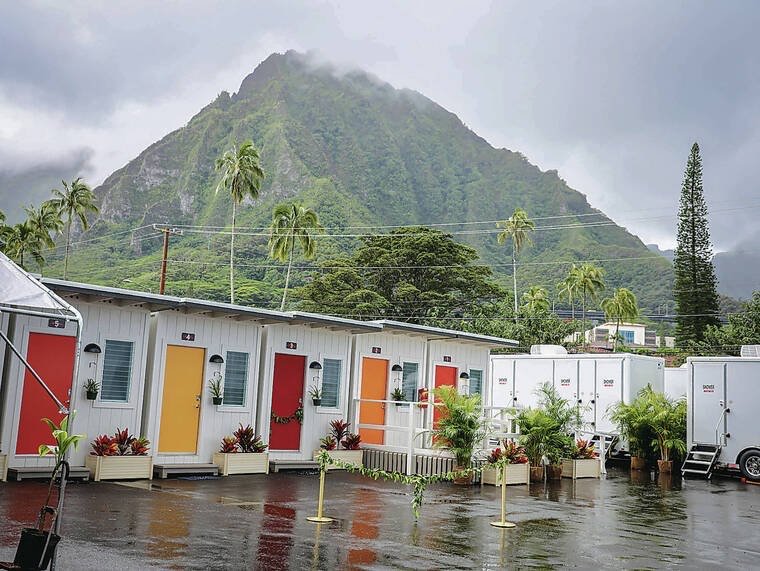K A U H A L E
HEAL. THRIVE. A SAFE PLACE.
Puʻuhonua O Nēnē
Puʻuhonua O Nēnē, opened in partnership with the State, is a temporary shelter initially created for Maui wildfire survivors who were homeless before the disaster. Since our opening, we have expanded to provide shelter for over 400 of our houseless neighbors from across the island of Maui. This safe space offers essential services including housing, medical assistance, meals, and more. Dedicated to holistic healing through health, culture, and wellness, the shelter ensures dignity and support for its residents as they rebuild their lives.
Ka Malu Ko’olau
Ka Malu Ko’olau Kauhale, opened in partnership with the State, is a housing program for houseless individuals on O‘ahu. This compassionate tiny home village offers case management and holistic supportive services. Residents benefit from individualized homes, shared facilities, on-site healthcare, daily meals, Wi-Fi, community activities, and more. This village fosters healing and recovery in a community setting, empowering residents to rebuild their lives together.
Kupanaha Medical Respite
Kupanaha Medical Respite, opened in partnership with Living Way Church Maui, is a specialty shelter for individuals experiencing homelessness on Maui. This program provides a safe space for recovery after hospitalization or medical treatment. Residents receive temporary accommodations, medical oversight, and connections to social services. The respite center, located on the grounds of Living Way Church Maui, offers a supportive environment where individuals can heal with dignity. This initiative fosters stability and recovery, empowering residents on their path to better health and long-term housing solutions.
What is Harm Reduction
Harm reduction is a public health approach focused on minimizing the negative consequences of risky behaviors, especially drug use. It prioritizes individual well-being and dignity, offering practical strategies like needle exchange programs and supervised consumption sites. The goal is to reduce health, social, and legal harms without necessarily requiring abstinence, improving overall quality of life and health outcomes.




